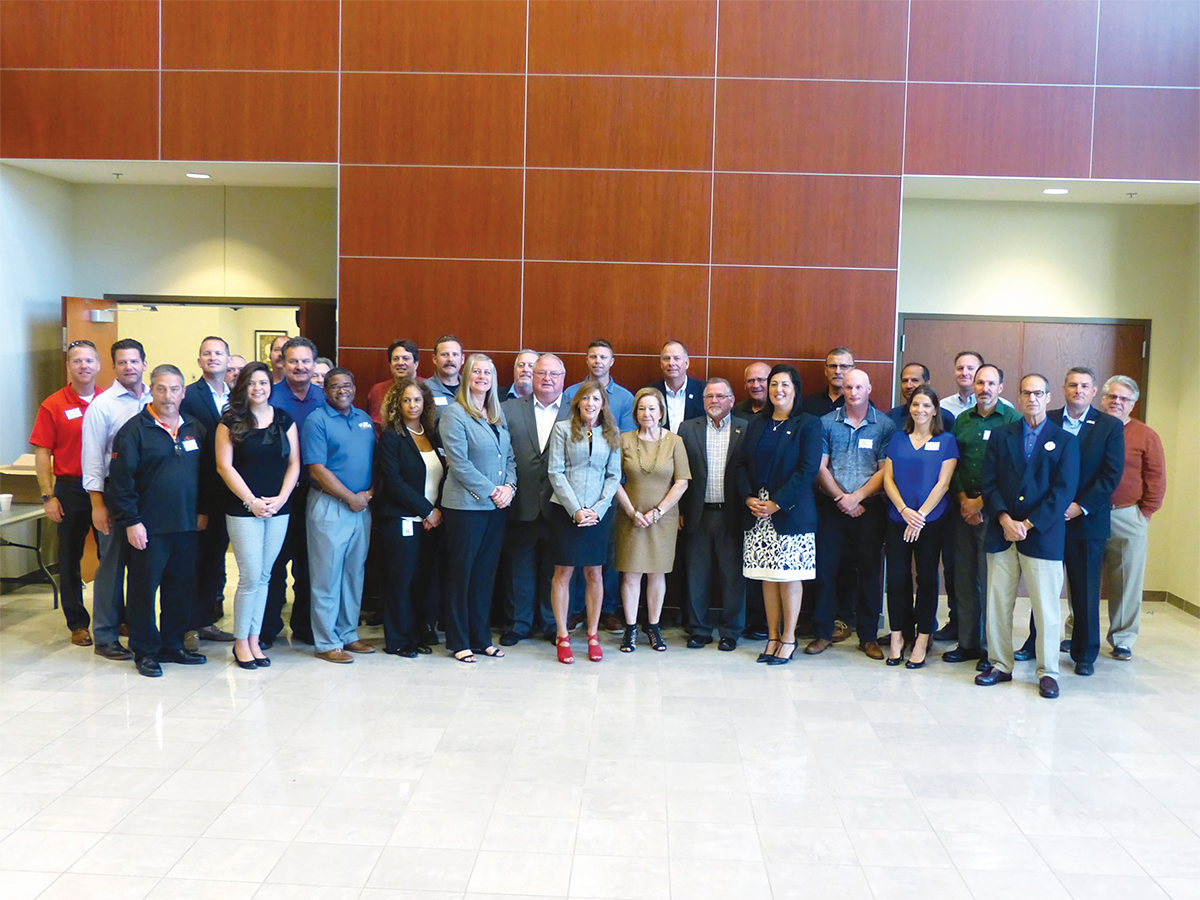
Supporters for Rep. Stephanie Kifowit, Sen. Linda Holmes and Rep. Linda Chapa LaVia came out for a Labor Breakfast, held at the Aurora-based PDC 30. Jennifer Rice/staff photographer

By Jennifer Rice
Managing Editor
Thursday, September 20, 2018
Email Jennifer Rice at: jen@foxvalley
labornews.com
AURORA — With less than two months to Election Day, TV commercials for Illinois’ governor race show incumbent Republican Gov. Bruce Rauner resorting to lies about his Democratic contender JB Pritzker.
There’s the anti-Pritzker commercial saying he will raise taxes, forcing one constituent to move out of Illinois.
“That is a lie,” said Sen. Linda Holmes. “Even if JB wanted to raise taxes, he can’t do it. It all has to go through [the legislature],” Holmes explained during a recent Labor Breakfast event at the Aurora-based Painters District Council 30, hosted by Holmes and Reps. Stephanie Kifowit and Linda Chapa LaVia.
Another TV commercial has Pritzker implementing a vehicle mileage tax and a vehicle tracking device — which prompted laughs from members of Organized Labor who were in attendance for the Labor Breakfast.
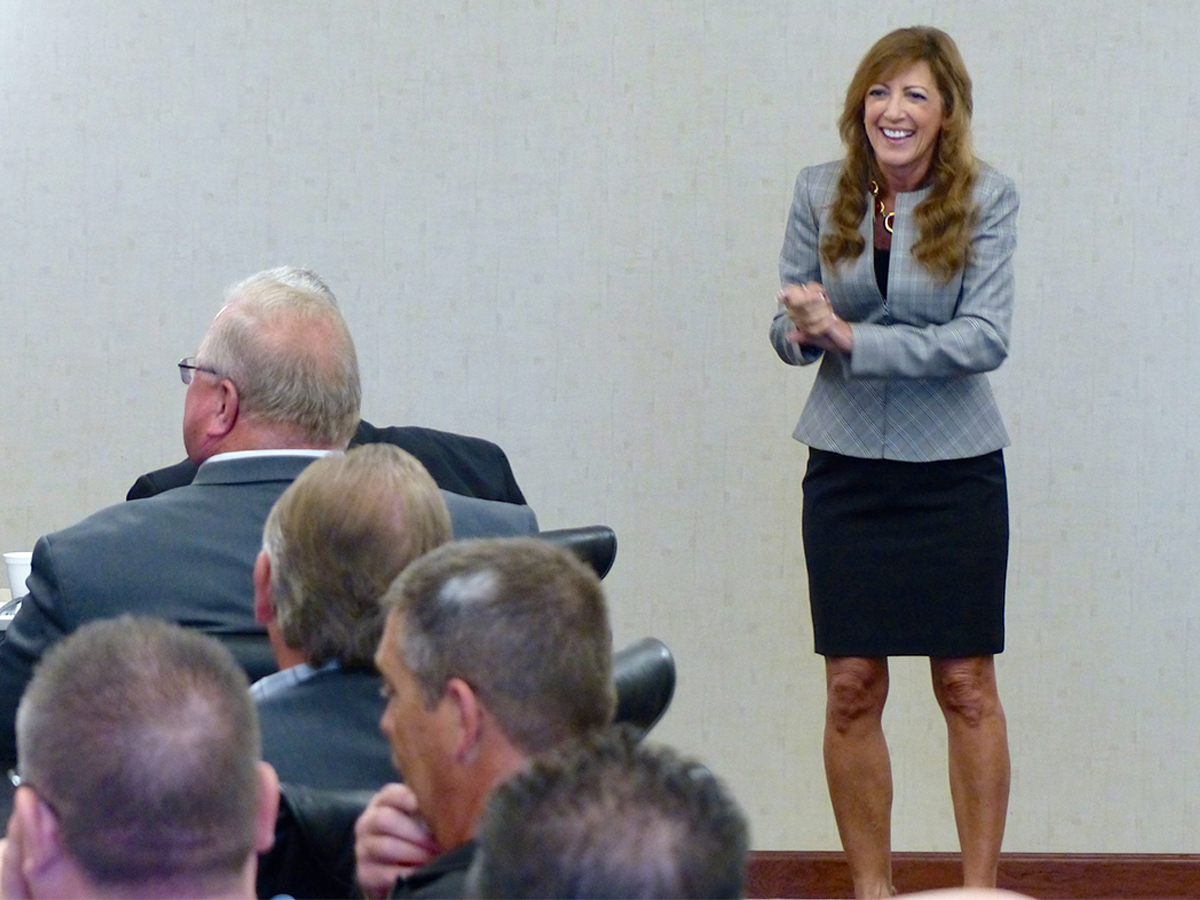
After 12 years in politics, Sen. Linda Holmes said her years with Republican Gov. Bruce Rauner leading the state has been her most challenging. “But, we’re going to see an end to that,” she predicted, when Democratic candidate JB Pritzker wins the governor race this November. Jennifer Rice/staff photographer
Holmes understands why union members laugh — they recognize it as an absurd lie. “But guess what: Not everybody knows it’s a lie,” she stressed. “I want everyone to remember when we thought [President Donald] Trump was a joke as a president. We didn’t think it was really going to happen to us and now we’re living it.”
Holmes, Kifowit and Chapa LaVia’s annual Labor Breakfast allows for their supporters in Organized Labor to chat with them, hear about their upcoming elections and discuss the status in Springfield.
Ted Penesis, who serves as collar county political director for Pritzker’s campaign, said Pritzker is a Labor supporter and Aurora is a Labor town.
“The key to this election is electing Democrats up and down the ballot, which is done by getting people out to vote,” Penesis said.
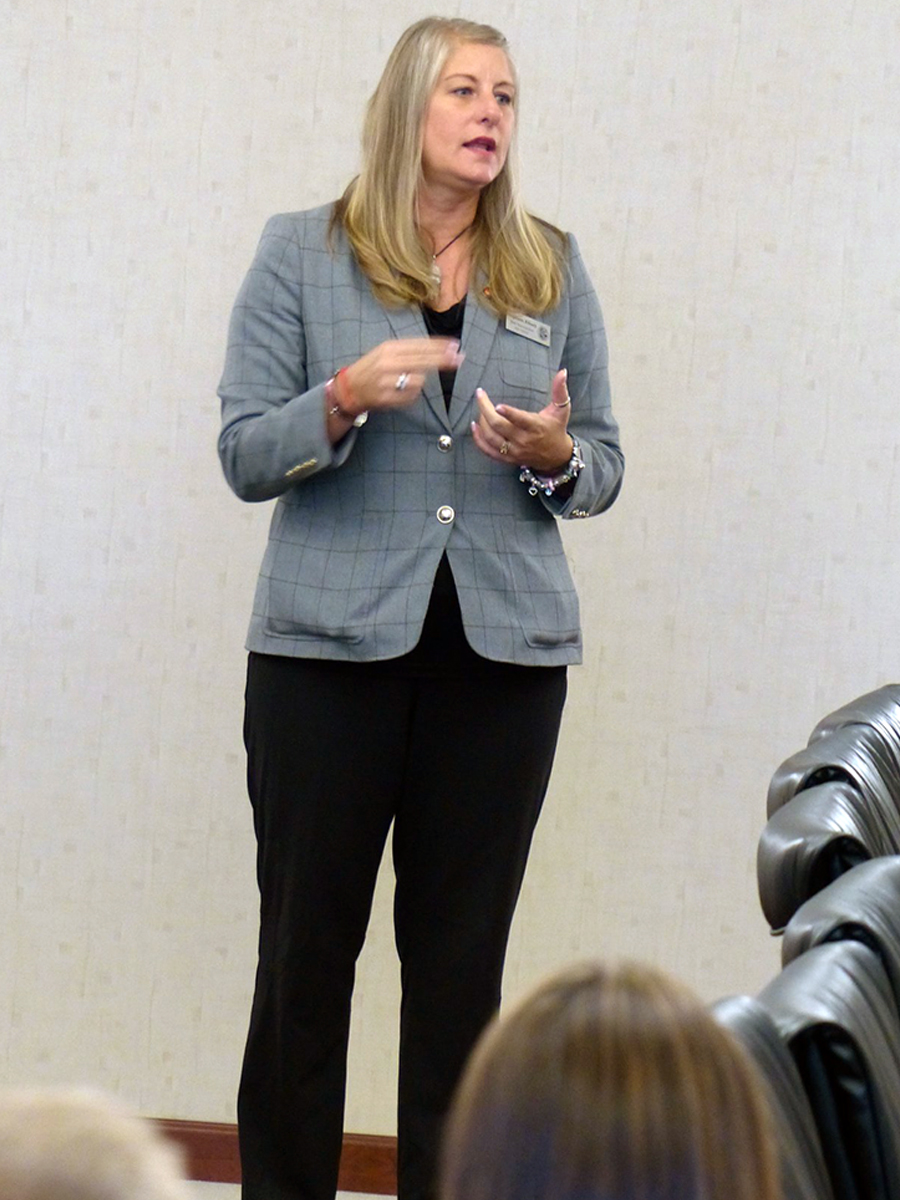
Rep. Stephanie Kifowit appreciates Organized Labor for providing equal pay for equal work – regardless of gender. “It’s a sad day when the legislature has to mandate that to be fair for everyone,” Kifowit said. Jennifer Rice/staff photographer
Kifowit told members she is humbled by the faith Organized Labor has instilled in her to represent them in Springfield. “Today, we’re seeing the accumulation of decades of manipulation and planning by people who really only worship money, instead of really seeing the fundamental benefit of embracing and lifting up people,” Kifowit said.
The Illinois AFL-CIO recently launched a statewide campaign calling on candidates running for office in Illinois to stand up to extreme attacks on workers’ rights by signing a Contract with the Middle Class — a contract Chapa LaVia signed, pledging to protect wages, workplace protections and collective bargaining rights for all.
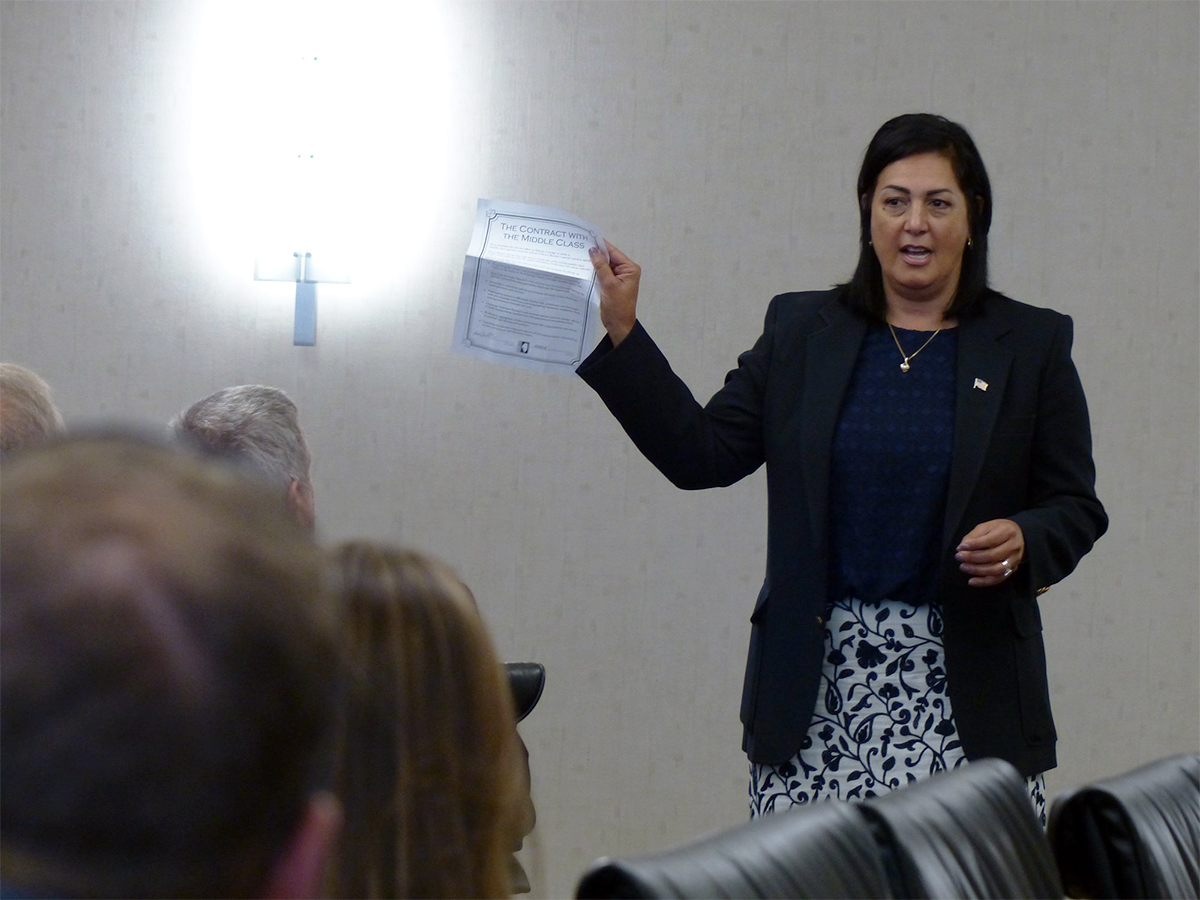
Rep. Linda Chapa LaVia tells union members she recently signed the Contract with the Middle Class pledge, a statewide campaign launched by the Illinois AFL-CIO. It calls on candidates running for office in Illinois to stand up to extreme attacks on workers’ rights. Candidates pledge to protect wages, workplace protections and collective bargaining rights for all. Jennifer Rice/staff photographer
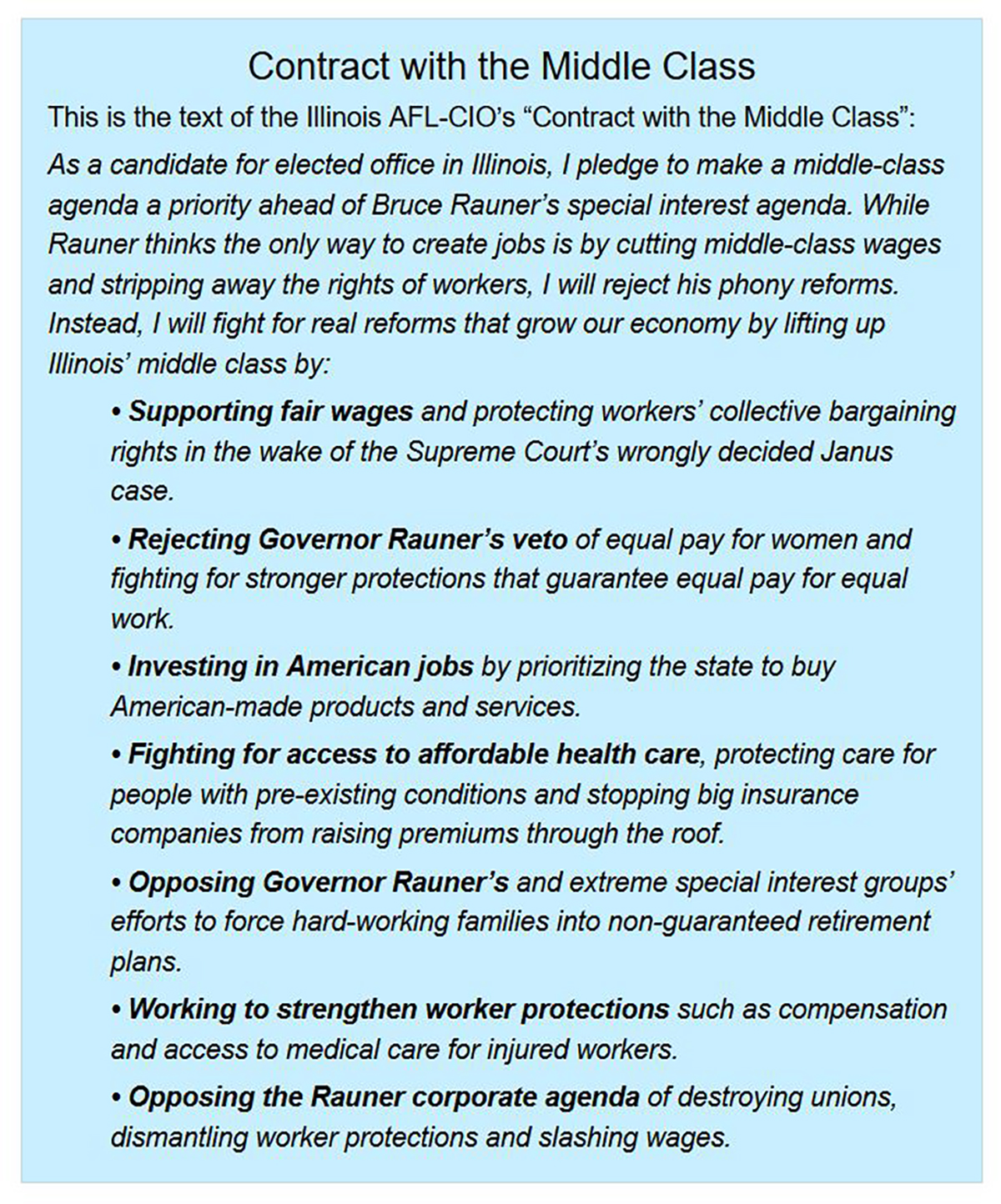
Contract with the Middle Class pledge, a statewide campaign launched by the Illinois AFL-CIO.
LaVia said she’ll soon be the Latino caucus assistant majority leader and is looking forward to working with union members to increase the roles of both the Latino and African-American communities in moving the country forward.
“If you have the attention of the black and Latino community today, you have people in the White House in the future,” LaVia said.


